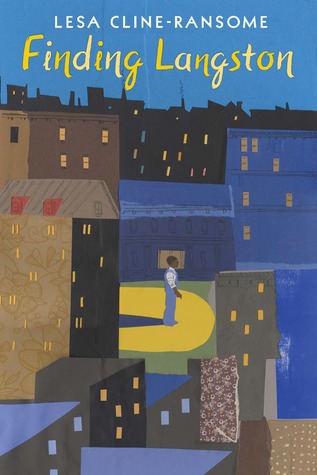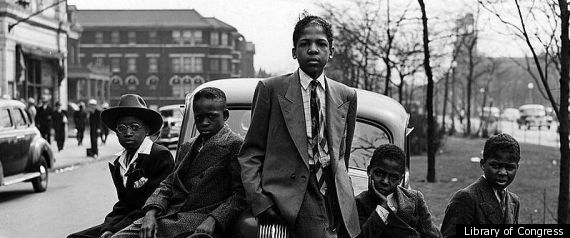 Cline-Ransom, Lesa. Finding Langston.
Cline-Ransom, Lesa. Finding Langston. August 14th 2018 by Holiday House
ARC provided by publisher at ALA Midwinter
Langston and his father have moved to Chicago from Alabama in 1946 after the death of Langston's mother. Langston misses his grandmother as well as the slower pace of life in the South. In the city, the two live in a very small apartment, and the father works long hours and does his best to cook dinner. There are some neighbors who are very helpful, like Miss Fulton, who teaching at a high school. Langston struggles in school with other students calling him "country", especially Lymon and Clem. In trying to avoid those boys, Langston happens upon the George Cleveland Hall Branch Library and finds, to his jubiliation, that it is NOT a whites-only library. In fact, the librarians are very kind, and help him to find books on different topics. One thing that interests him especially is the poet Langston Hughes, for whom he was named. There are letters from his mother to his father that quote some lines of Hughes' poems, and reading them makes him feel closer to his mother. Langston keeps both the bullying and the library from his father for a long time, but after his grandmother passes away and his father must travel to Alabama, Langston shares his sadness and frustrations with his father, and the two try to improve how they go forward.
Strengths: The Great Migration is a fascinating but underrated period in history, and I would love to see more books about it. The relationship between Langston and his father seems very typical of the time period, and the longing for Alabama that Langston feels is probably something many children felt, even though conditions in the South weren't great. There are enough details about life in the city at this time to make Langston's story more interesting, and the trouble with classmates will resonate with children today.
Weaknesses: I wish there had been less about Clem and Lymon and a LOT more details about daily life. The treatment of blacks in Chicago during this era is touched on, but not given the full treatment it received in Betty Before X , which was fascinating.
What I really think: Definitely purchasing, although I wish the cover were a little better. There are some fantastic photos of this era that could have been used.
 |
| http://originalpeople.org/chicagos-great-migration-blacks-leaving-historic-neighborhoods-to-return-south/ |

























I hadn't heard of this one. Thanks for sharing it. I'll need to look at it better for adding to my library.
ReplyDelete